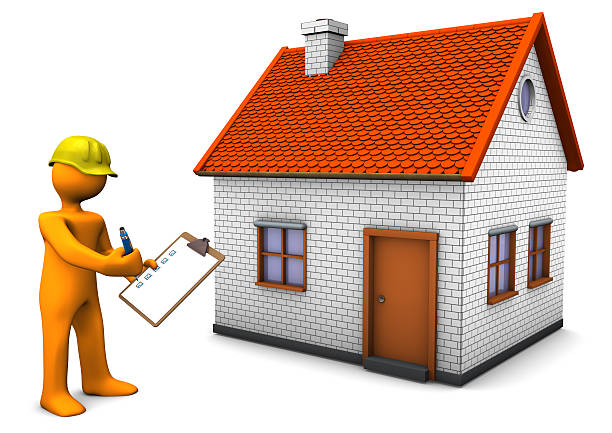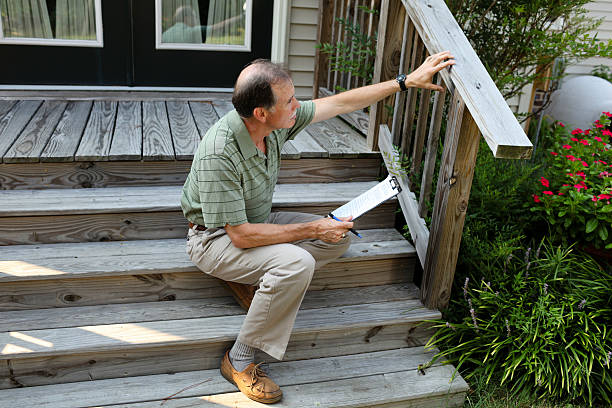
When navigating the home buying or refinancing process, many homeowners and buyers ask the same critical question: how long does a home appraisal take? This step is pivotal, as it determines the fair market value of a property and can significantly impact mortgage approvals, negotiations, and closing timelines. While it may seem like a minor box to check, the appraisal is anything but. Understanding what to expect from start to finish can ease stress and help keep your transaction on track.
Understanding the Home Appraisal Timeline
A home appraisal typically unfolds in several key stages: scheduling the appraisal, completing the physical inspection, analyzing comparable sales, and compiling the final report. While each step may sound straightforward, the timing can vary based on the complexity of the property, availability of comparable homes (known as comps), the appraiser’s workload, and even geographic location.
Here’s a more detailed breakdown of the timeline:
-
Scheduling: After the lender requests an appraisal, an appraiser must contact the homeowner or agent to schedule the property visit. This process alone can take between 1 and 7 business days, depending on both parties’ availability and market conditions.
-
On-Site Visit: The appraiser’s physical inspection of the home typically takes 30 minutes to several hours. They’ll assess the home’s size, layout, condition, upgrades, and curb appeal, as well as take measurements and photographs. For larger properties or homes with unique features, this stage might take longer.
-
Market Analysis & Report Preparation: This is the most time-consuming portion. The appraiser must find and analyze comparable properties recently sold in the area to determine a fair market value. If comps are readily available, this process may take just a couple of days. However, in rural areas or hot markets with limited inventory, it can take up to a week or more.
-
Submission to Lender: After the report is finalized, it’s sent to the lender for review. The lender may request clarifications or corrections, adding another day or two.

How Long Does a Home Appraisal Take?
So, exactly how long does a home appraisal take from start to finish? While the on-site visit might be completed in just a few hours, the entire process—from scheduling to delivery of the final report—usually takes between 7 to 10 business days. In markets with high demand, it could extend to two weeks or more.
If you’ve been wondering how long does it take for a home appraisal on a unique, luxury, or remote property, expect additional time. Appraisers may need to dig deeper to find relevant comps or consult multiple data sources.
Also, keep in mind that lenders typically cannot proceed to the final loan approval or set a closing date until the appraisal report is received and reviewed. Thus, the speed of the appraisal directly influences your closing timeline.
Key Factors That Can Delay Your Home Appraisal
There are numerous reasons why your home appraisal could take longer than expected. Being aware of these potential delays allows you to prepare ahead of time and mitigate any setbacks.
High Market Volume:
During peak seasons—spring and summer, or times of favorable interest rates—appraisers may be juggling multiple requests, causing scheduling backlogs.
Property Complexity:
Unique architecture, large square footage, additional units, or specialty amenities like pools or home theaters can complicate the evaluation.
Remote or Rural Location:
If your home is in a remote area, there may be fewer comparable sales nearby. Appraisers might also need to travel longer distances, affecting scheduling.
Limited Comparable Sales:
In markets where few similar properties have sold recently, appraisers need extra time to find or justify less ideal comps.
Tenant-Occupied or Inaccessible Properties:
If tenants or owners are uncooperative or unavailable, it can delay both access and completion of the physical inspection.
Unfinished Work or Renovations:
Ongoing projects—like unfinished kitchens, missing floors, or unpermitted additions—can force appraisers to pause the evaluation or return later.
Weather Conditions:
Poor weather, especially in colder climates, may impact appraiser mobility or make it harder to accurately assess external property features.
Understanding these factors is key to managing your expectations and helping the appraisal go as smoothly as possible.

What Happens After the Appraisal? Next Steps Explained
Once the appraisal report is completed and submitted to your lender, your mortgage process moves into the final stretch. But what happens next?
-
Lender Review and Reconciliation: The lender’s underwriting team reviews the appraisal to confirm it meets the loan criteria. They look closely at the estimated value, condition of the home, and any red flags noted by the appraiser.
-
Value Meets or Exceeds Offer: If the appraisal value supports or exceeds the purchase price, the transaction usually proceeds without issue. The loan continues through underwriting, and the lender issues a “clear to close.”
-
Low Appraisal Value: If the appraisal comes in lower than the agreed sale price, this could delay closing. Buyers and sellers may need to renegotiate, the buyer may have to put down more cash, or in some cases, the deal may fall through.
-
Underwriting Conditions: Sometimes the appraisal triggers new questions or conditions from underwriting, such as needing a second review or clarifications from the appraiser.
-
Closing Process Initiated: Once all documents are in order and the appraisal is approved, the lender coordinates with the title company to schedule a closing date. At this point, the finish line is within reach.
This post-appraisal phase typically lasts between 1 and 2 weeks, depending on how quickly any outstanding issues are resolved and how responsive all parties are.

Conclusion
While it may seem like a small piece of the puzzle, knowing how long does a home appraisal take is crucial to navigating the real estate process smoothly. From inspection to final report, this step can influence your financing, negotiations, and timeline for closing. Understanding how long it takes for a home appraisal—and what factors may cause delays—can help you prepare accordingly and reduce stress.
If you’re eager to dive deeper into real estate investing, you may find inspiration and tools at Dwanderful. Run by Dwan Bent-Twyford—a seasoned real estate investor and popular podcast host—Dwanderful offers a rich set of resources to help both beginners and experienced investors.
Dwan offers a free book titled “Real Estate Lingo” that demystifies the often-confusing terms of the trade, a must-have for anyone navigating real estate for the first time. For those looking to build a long-term investment strategy, her paid guide, “Five Pillars of Real Estate Investing,” delivers practical, actionable insights to build lasting wealth.
Want a fun way to see how you stack up as an investor? Take the quiz game on Dwanderful and discover how you could generate six figures in the next six months—whether you’re buying your first property or your next. It takes less than a minute and could set you on the path to financial freedom. Contact us now!
Frequently Asked Questions:
Does a messy house affect an appraisal?
A cluttered or messy house won’t directly lower your appraisal value, but it can affect how well the appraiser views the home’s condition. A clean, organized home allows them to see its true features and condition more clearly. If repairs or issues are hidden beneath clutter, it may also prompt the appraiser to be more conservative in their valuation.
How long does it take to close after the appraisal is done?
Typically, closing can happen within 1–2 weeks after a successful appraisal, depending on how quickly underwriting is completed and whether any conditions need to be resolved. If there are no surprises in the appraisal and the borrower’s finances are already verified, the process can move quickly.
What is the 3-day appraisal rule?
The 3-day rule refers to the requirement under the Truth in Lending Act (TILA) that lenders must deliver a copy of the appraisal to the borrower at least three business days before closing, allowing time for review. This rule is designed to give borrowers sufficient time to understand the results of the appraisal before finalizing the mortgage agreement.
By taking the time to understand the appraisal process, timelines, and potential obstacles, you can stay ahead of the game and make better-informed decisions during your real estate journey. Whether you’re buying, selling, or investing—preparation is the key to a smooth and successful closing.


